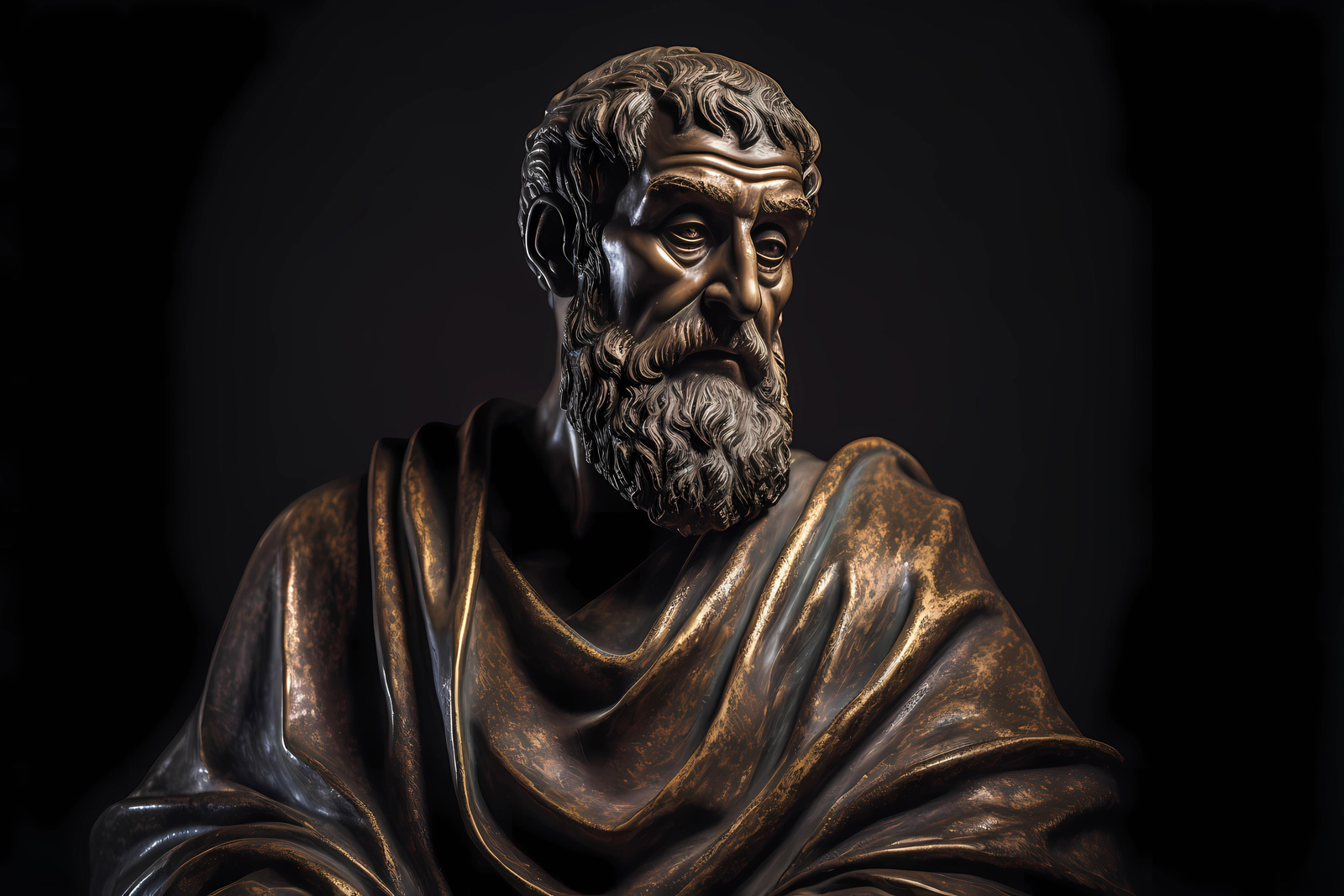
Back to blog
Education
May 29, 2024
Augustine on Shaping a Fragmented World
We live in a fragmented world, and all indications are that it is getting worse. As Christians, we know God designed the world with a pattern. A person who recognizes the pattern and can put the pieces together in the right way will lead culture. Augustine of Hippo was one such figure. He lived during the fragmented world of the collapsing Roman Empire with wars, political turmoil, and riots. Through it all, he looked to God, who holds everything together. This knowledge made Augustine a key shaper of culture who has an impact centuries later.
In this series, we have examined several influential Christians who have shaped the vision and curriculum at New Saint Andrews College. Some examples we looked at were G.K. Chesterton and his joyful courage, John Calvin and his desire to know God, and Cornelius Van Til and his insights into the antithesis in the world. In this last installment, we look at Augustine of Hippo and the patterns he found in God’s world.
Augustine lived from AD 354 to 430. In his early days, he wandered away from the Christian faith, exploring many different philosophies but ultimately converting to Christianity. He tells about this conversion in his famous work Confessions. Augustine’s magnum opus is The City of God, written in response to the attack on Rome in AD 410. In this work, Augustine evaluates the declining Roman empire while setting forth Christianity’s role in the world. Students at NSA read and study this work as one of the pivotal works in Western literature. Augustine sets forth a vision for history and time that still shapes Western thought today.
While the Roman Empire was collapsing, Augustine reminded Christians of their true hope and mission: working for the heavenly kingdom that would never collapse.
In this work, Augustine offers hope to Christians of his day. While the Roman Empire was collapsing, Augustine reminded Christians of their true hope and mission: working for the heavenly kingdom that would never collapse.
One critical insight from Augustine is that love in and of itself is not a virtue. Contrary to modern mantras, love is not automatically good. The world is not divided into people who love and people who do not. Instead, love is part of what it means to be human, so we must see what the person loves to evaluate it properly. If someone loves God, then that is a good love. If someone loves stealing, then that is a bad love. The object of love shapes whether it is good or not.
Augustine further explains that good love is a rightly ordered love. The Bible teaches that Christians must love God first. This command holds in all relationships. To put something else in that primary place–spouse, friend, money–inverts the order of love and makes our love immoral. We are called to love, but we do that by loving things as God commands us to love them: God first and our neighbor second. When we follow this command, we live according to the way God has made the world.
When we follow this command, we live according to the way God has made the world.
In the City of God, Augustine divides all history into two cities: the city of God and the city of Man. This model sheds light on several critical disciplines, including history, political philosophy, and theology. These two cities started back in the beginning with Cain and Abel. Cain killed Abel and built a city. This is the principal action of the city of Man: murder and city building. On the other hand, Abel is a picture of the city of God. This city is built on faith in God and true worship. Even when the city of God suffers hardship and trials, the city still endures because God himself is the founder. These two cities run throughout history up to the present day. Augustine insightfully connects this paradigm of cities to his discussion on love. He writes, "The two cities were created by two kinds of love: the earthly city was created by self-love...the heavenly city by the love of God." Each city embodies a different kind of love: those in the city of Man love themselves and hate God, and those in the city of God love God and hate themselves.
"The two cities were created by two kinds of love: the earthly city was created by self-love,...the heavenly city by the love of God."
Augustine is a master of making connections. This is one of the reasons he has had such a profound impact on the shape of the world. He knew God made everything, and so everything reveals God in some way. This, in turn, means that everything connects and relates to everything else. The world is like a multifaceted diamond; each facet reflects God, and also each facet reflects the other facets as they reflect God. This means there is no part of the cosmos that is independent. All are interdependent.
NSA students study Augustine’s work to learn how to see connections across diverse disciplines. This skill is one of the most important that leaders can have. They gain this skill through the liberal arts program, which focuses on studying the God who made the world and looking for the story he is telling. While culture might be fragmented, we know that God has built the world with an inherent pattern to discover. NSA students learn the pattern God has established and are equipped to lead others in following that pattern.